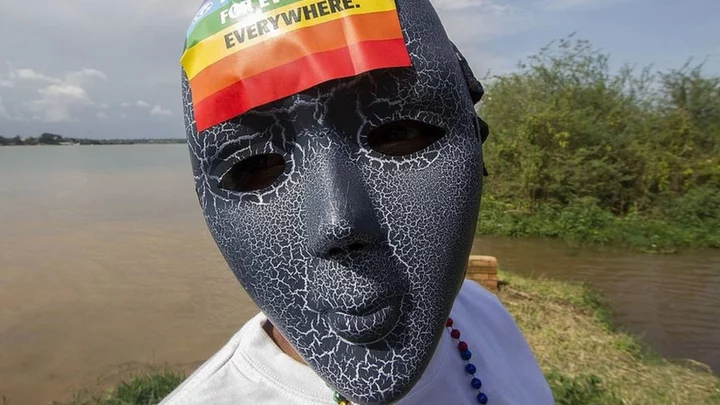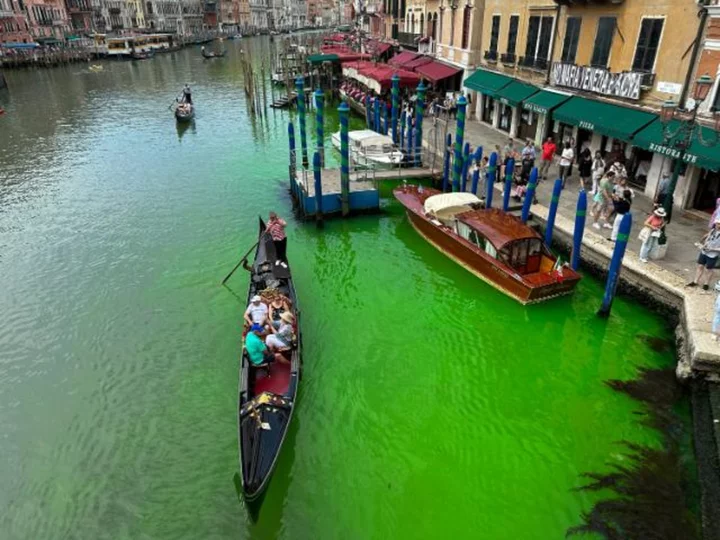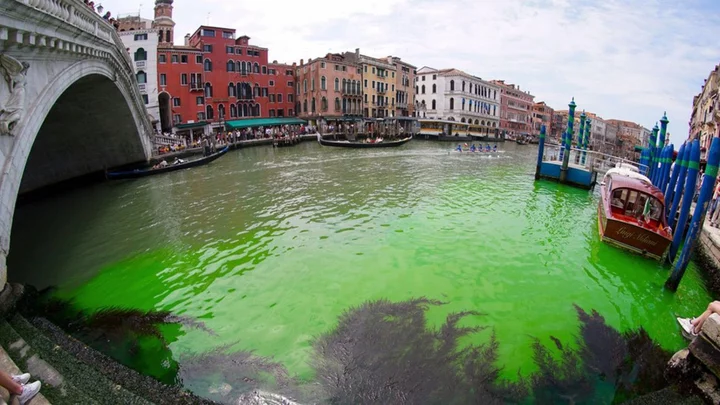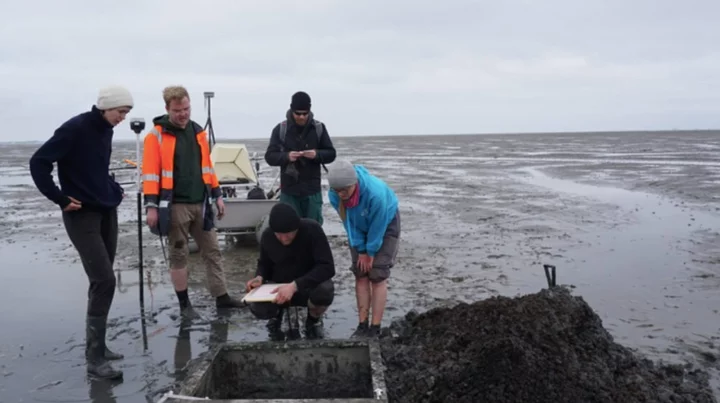
Man uniting Indian families torn by colonialism
Shamshu Deen has helped more than 300 people in the Caribbean find long-lost loved ones in India.
2023-05-30 05:20

Pita Limjaroenrat: Thai election upstart who vows to be different
Pita Limjaroenrat tells the BBC he wants to govern "for the people", but big hurdles lie ahead.
2023-05-30 05:16

Uganda enacts harsh anti-LGBTQ law including death penalty
KAMPALA Uganda's President Yoweri Museveni signed one of the world's toughest anti-LGBTQ laws, including the death penalty for
2023-05-30 02:21

Newport: Photographer blends love of Africa with Welsh communities
Glenn Edwards was a steelworker before finding a love for photography in his mid 20s by chance.
2023-05-30 02:18

Uganda's President Museveni approves tough new anti-gay law
UNAids and the US warn that Uganda's progress in tackling HIV is now in "grave jeopardy".
2023-05-29 20:56

Bola Tinubu inauguration: Nigeria swears in new president
Bola Tinubu, 71, won February's election with a promise to renew hope and needs to act fast.
2023-05-29 18:16

Enfield parents want answers after baby dies on Portugal holiday
Baby Adonis' parents say they want "justice" for their son and an apology for their treatment.
2023-05-29 16:48

Venice authorities investigate after canal turns fluorescent green
Venetian authorities are investigating after a patch of fluorescent green water appeared in the famed Grand Canal on Sunday morning.
2023-05-28 23:26

Venice canal mysteriously turns fluorescent green
Theories abound as to why the waters below the Rialto Bridge in the Grand Canal turned bright green.
2023-05-28 23:16

Dutch police arrest over 1,500 people at Extinction Rebellion protest in The Hague
Dutch police arrested over 1,500 people after Extinction Rebellion protesters blocked a motorway in The Hague on Saturday.
2023-05-28 22:56

Melissa Kinsella: Mum left in coma in Turkey dies after UK return
Melissa Kinsella arrived back in the UK on Wednesday after £50,000 was raised to get her home.
2023-05-28 20:57

Europe's 'City of Atlantis' discovered after being lost for 600 years
The remains of a church from a sunken town known as the 'Atlantis of the North Sea' has been discovered beneath the mud on Germany's coast. The church is believed to be part of a site called 'Rungholt' located in the Wadden Sea. The town, which was previously thought to be a local legend, has not been seen since 1362 after it was submerged beneath the waves during an intense storm. However, new research has shown that the town really did exist and that they had built reinforcements around the settlement to protect them from the severe elements. The research was carried out on the area by archeologists from Kiel University, Johannes Gutenberg University Mainz, the Center for Baltic and Scandinavian Archaeology, and the State Archaeology Department Schleswig-Holstein. Sign up to our free Indy100 weekly newsletter Searching the Wadden Sea which is the longest stretch of intertidal sand and mud flats on Earth, the team, using geophysical imaging technology found man-made mounds that had been constructed to protect the town against the tides. Amongst this structure were the foundations of a building which the team determined had to be a church which may have been the location of the town centre. In a statement, Dr. Dennis Wilken, a geophysicist at Kiel University of Kiel University said: "Settlement remains hidden under the mudflats are first localized and mapped over a wide area using various geophysical methods such as magnetic gradiometry, electromagnetic induction, and seismics." Dr. Hanna Hadler from the Institute of Geography at Mainz University added: "Based on this prospection, we selectively take sediment cores that not only allow us to make statements about spatial and temporal relationships of settlement structures, but also about landscape development." Dr. Ruth Blankenfeldt, an archaeologist at ZBSA also suggested that the "special feature of the find lies in the significance of the church as the centre of a settlement structure, which in its size must be interpreted as a parish with superordinate function." The storm that washed away Rungholt has gone down in history as one of the largest to ever hit the region, affecting not just Germany but also the Netherlands, Denmark and the UK. The storm happened on January 1362 and has since been referred to as "the great drowning of men." According to historical reports, Rungholt was once a busy trading port for fishermen but was also populated by taverns, brothels and churches. Have your say in our news democracy. Click the upvote icon at the top of the page to help raise this article through the indy100 rankings.
2023-05-28 19:27
